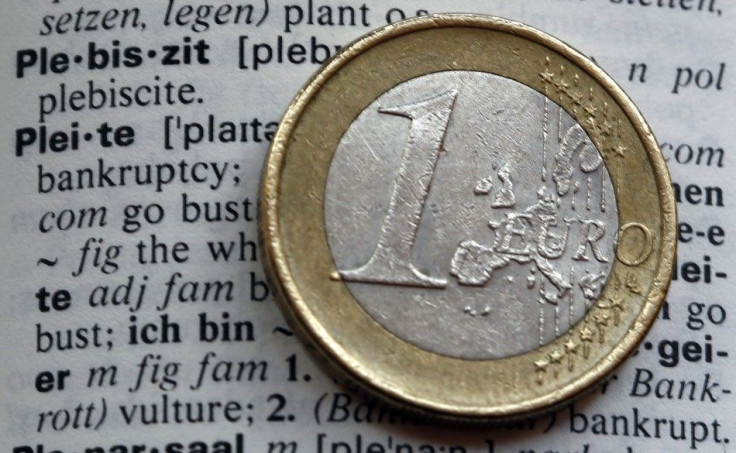Euro Zone Industrial Output Fell In March, Recession Likely: Eurostat

Euro zone industrial production fell by 0.3 percent in March, despite gains made the previous month, and year-over-year production plummeted 2.2 percent, changes that economists say may pressage a recession, a report from the European Commission's Eurostat statistics bureau said Monday.
It is evident that euro zone manufacturers are currently finding life very difficult amid challenging conditions, Howard Archer, analyst at HIS Global Insight said, according to the BBC.
The drop in production for the euro zone was unexpected, and economists surveyed by Reuters had forecast growth of 0.4 percent for March, continuing a growth trend from February when production gained 0.8 percent. Another reported from Eurostat, scheduled for release on Tuesday, is expected to show that the euro zone entered its second recession in three years in March.
The main factor leading to the drop in production was a precipitous 8.5 percent decrease in energy production during March. Durable goods production also fell 0.2 percent, and the combined losses could not be offset by other sectors. Year-over-year, every industrial sector experienced at least a 3 percent drop in production with the exception of capital goods, which gained 2.3 percent.
During March, German output gained 1.3 percent, and Italian output grew 0.5 percent. However, Greek output fell 1 percent, Spanish 1.8 percent and French output declined 0.9 percent. Likewise, Irish output fell 2.7 percent.
Year-over-year, Germany still managed to post a 1.4 percent gain in production, but the good news didn't extend to the other major economies. French industrial output ticked down 1.2 percent, while Italian production tumbled 5.8 percent. Spanish output plummeted 7.5 percent, and Greek output ailed further, falling 8.5 percent. Irish output took a 3.2 percent hit.
Among the European Union's 27 member states, only the Czech Republic, Germany, Latvia, Lithuania, Poland, Slovakia and Norway posted appreciable gains in production.
The industrial malaise was not limited to the 17 members of the euro currency union, but affected all 27 members of the European Union. Production for the EU 27 fell 0.4 percent from February to March and 1.9 percent year over year, according to the report.
© Copyright IBTimes 2024. All rights reserved.











